White sesame paste, tahini
Nourishing, energizing remedy, ally of the cardiovascular system
White sesame tahini with grape seed oil - a simple, inexpensive remedy recipe available to anyone, but at the same time with numerous benefits for the body, such as: prevents cardiovascular diseases, osteoporosis, supports digestion, a nutritious product and many others...
Servings: 10 servings
Makes about 10 servings of 15-20g per serving, i.e. one tablespoon
Ingredients
Materials
- - containers
- - mixer for grinding sesame
Preparation
 We prepare the quantities of ingredients!
We prepare the quantities of ingredients! Bake the white sesame for ~5 minutes, either in the oven at 180ºC or in a pan, over medium heat, stirring with a wooden spoon (we have to be careful because the sesame seeds can burn very quickly).
Bake the white sesame for ~5 minutes, either in the oven at 180ºC or in a pan, over medium heat, stirring with a wooden spoon (we have to be careful because the sesame seeds can burn very quickly).
The sesame seeds are ready when they turn slightly golden.
By heating-drying, the oils from the sesame seeds are released, thus ensuring the formation of a creamy paste. After they have been roasted, allow the white sesame seeds to cool slightly, 2-3 minutes, and transfer them from the tray or pan to their original container.
After they have been roasted, allow the white sesame seeds to cool slightly, 2-3 minutes, and transfer them from the tray or pan to their original container. Baked and slightly cooled sesame seeds will be ground with the help of a mixer robot. A slightly oily flour will be obtained. Grinding time differs from mixer to mixer - 30 seconds.
Baked and slightly cooled sesame seeds will be ground with the help of a mixer robot. A slightly oily flour will be obtained. Grinding time differs from mixer to mixer - 30 seconds. Add the grape seed oil to the mixer bowl, over the formed sesame flour.
Add the grape seed oil to the mixer bowl, over the formed sesame flour. Mix again (~ 30 seconds), until a creamy paste is formed.
Mix again (~ 30 seconds), until a creamy paste is formed.
If you notice that the paste is sticking to the sides of the mixing bowl, then you can help the mixing process by opening the bowl and stirring with a wooden spoon and then mixing again. We move the sesame paste formed from the bowl of the mixer to another bowl, place it with the help of a spoon, and finally press a few white sesame seeds for decoration ;).
We move the sesame paste formed from the bowl of the mixer to another bowl, place it with the help of a spoon, and finally press a few white sesame seeds for decoration ;).
It must be kept in the refrigerator covered with a lid!
This paste can be stored in the fridge for up to 2 months, but we recommend making small quantities and consuming them within a few days.
Administration
→ As such, you can take 1 tablespoon 1-3 times a day, 30 minutes before meals in courses of 3 months, especially in the morning on an empty stomach, with breaks of 2-4 weeks!
→ In combination with various dishes: it can be added to various dishes, especially Lebanese ones (hummus), in vegetables or legumes, as a sauce, or even on bread / bread for breakfast.
⚠ The tahini white sesame paste has a high caloric value (a large spoonful of ~20g contains 80-100 calories), hence the recommendation for moderate consumption.
Observations
→ The white sesame should be baked between 3 and 5 minutes until it acquires a slight golden tint, thus the flavor of the sesame seeds intensifies and an easier release of the fats/oils is ensured.
→ The oil used has the role of binding the paste better, giving it creaminess. By increasing or decreasing the amount of oil we will obtain a thinner or denser paste.
→ Storage and validity: the sesame paste must be kept in the refrigerator and we recommend making small quantities so that they can be consumed in the shortest possible time. In the refrigerator, white sesame paste can be kept for up to 2 months.
→ There are recent studies showing that people who consume this sesame paste in the long term, decrease the risk of cardiovascular diseases!
Thanks to oleic acid and linoleic acid (omega 3) in the composition, it reduces the level of bad cholesterol (LDL) in the blood.
Also, the nutrients sesamin and sesamolin (unique antioxidants found only in sesame seeds and implicitly tahini paste) have properties to lower the level of bad cholesterol (LDL) in the blood.
Effects and benefits
- nourishing, energizing product with high energy value;
- an important source of Omega 3 fatty acids (oleic and linoleic acid);
- rich in vitamins: vitamins A, B, C, E;
- rich in calcium, selenium, magnesium and phosphorus minerals;
- a good source of protein;
- fiber source;
- the ally of those with cardio-vascular problems;
- reduces the risk of cardiovascular diseases;
- regulates cholesterol and triglycerides;
- regulates blood pressure;
- helps to detoxify the liver and kidneys;
- strengthens the immune system;
- prevents osteoporosis, sesame being rich in calcium;
- supports digestion;
- regulates intestinal transit;
- treats constipation;
- good in treating heartburn;
- antioxidant effects;
- anti-inflammatory effects;
- reduces joint pain;
- increases fertility and are aphrodisiacs;
- helps strengthen the immune system;
- helps people with anemia;
- prevents diabetes;
Side effects
- allergies for those allergic to any of the ingredients;
Contraindications
- allergic people;
- women with hormonal imbalances;
- people with hypercalcemia;
FAQ 💡❓
What is simple unsweetened white sesame tahini paste?
➡️ It is a paste made from roasted white sesame seeds, finely ground, without added sugar or sweeteners, used as a nutritious ingredient and natural remedy.
What ingredients are needed for simple tahini?
➡️ Only hulled white sesame seeds, lightly roasted and ground into a smooth paste.
How is tahini paste prepared at home?
➡️ Toast white sesame seeds on low heat, let them cool, then blend until creamy.
What are the health benefits of tahini?
➡️ Rich in calcium, magnesium, phosphorus, iron, plant proteins and healthy fats, it supports bone, heart and nervous system health.
Can tahini be used as a natural remedy?
➡️ Yes, it boosts immunity, balances blood pressure, supports digestion, and provides natural energy.
How should tahini be consumed?
➡️ Spread on bread, mixed into sauces, salads, hummus or smoothies, in moderate daily amounts.
Are there side effects from eating tahini?
➡️ Generally well tolerated, but excessive amounts may cause stomach discomfort or weight gain due to high calories.
Who should avoid tahini?
➡️ People allergic to sesame, with digestive sensitivity, or on strict low-calorie diets should be cautious.
Is tahini suitable for children?
➡️ Yes, in small amounts, as a calcium and protein source, but only after ruling out sesame allergy.
How long does homemade tahini last?
➡️ Stored in a sealed glass jar in a cool, dark place, it lasts for several weeks.
Why prefer unsweetened tahini?
➡️ It keeps full nutritional value and natural taste, making it healthier and more versatile.
Is tahini suitable for vegan and vegetarian diets?
➡️ Absolutely, it is an excellent source of plant protein and healthy fats.
Can tahini replace dairy for calcium intake?
➡️ Yes, sesame seeds are among the richest plant-based sources of calcium.
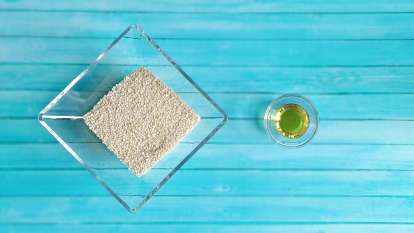
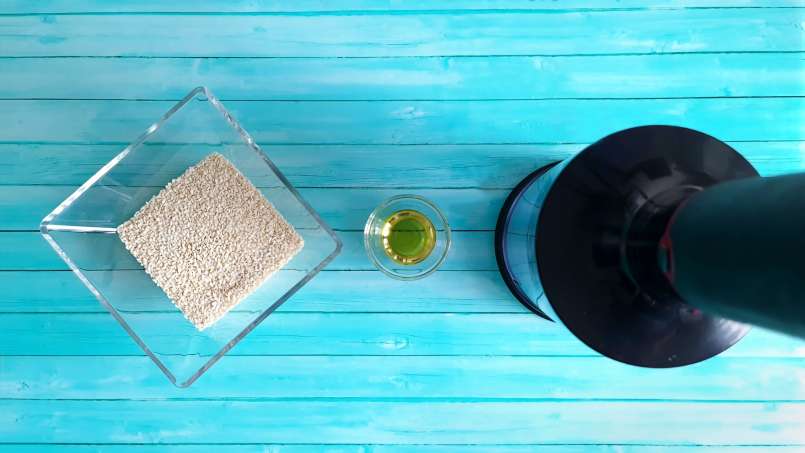
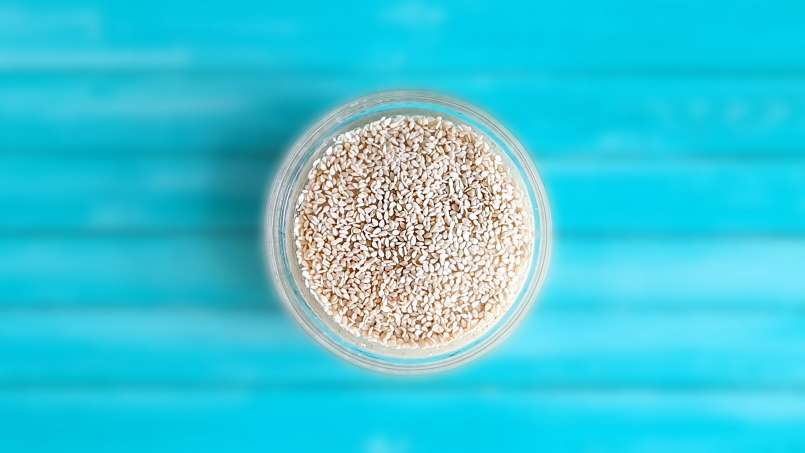
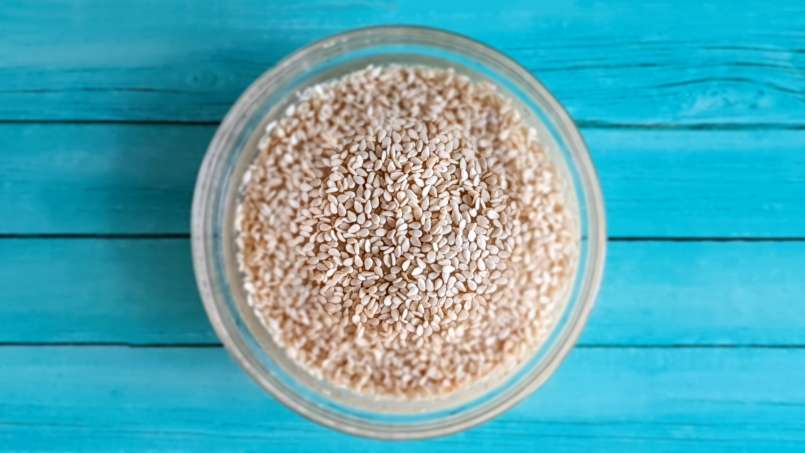
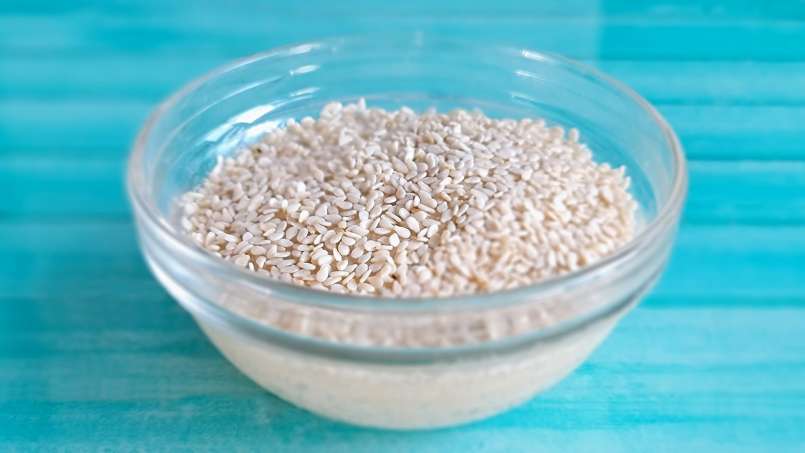
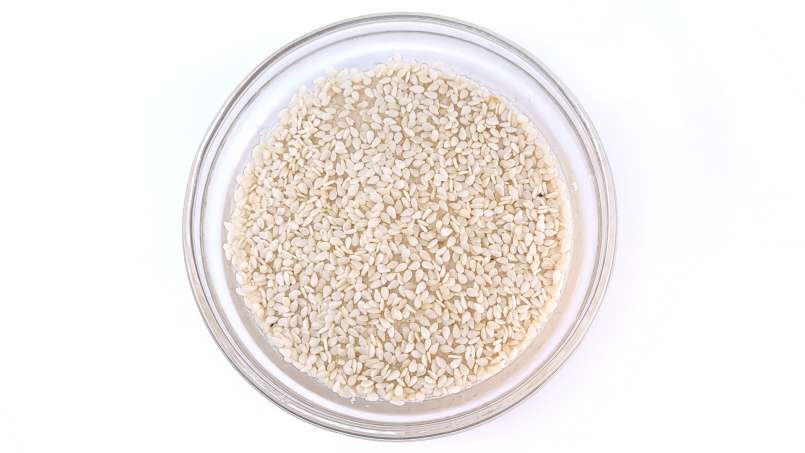
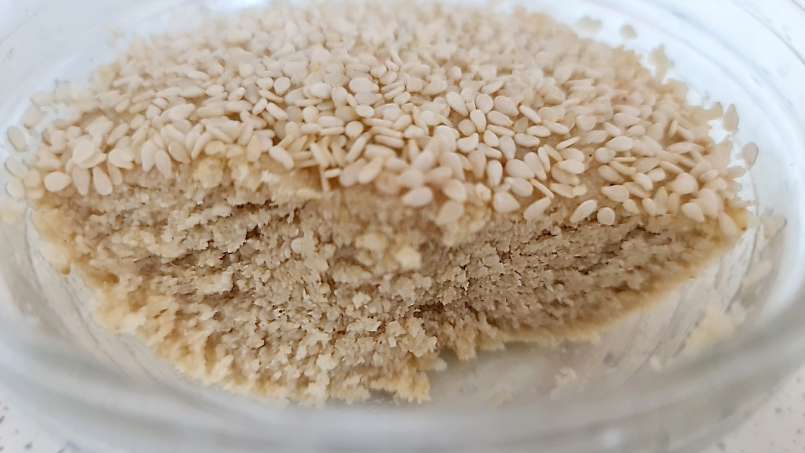
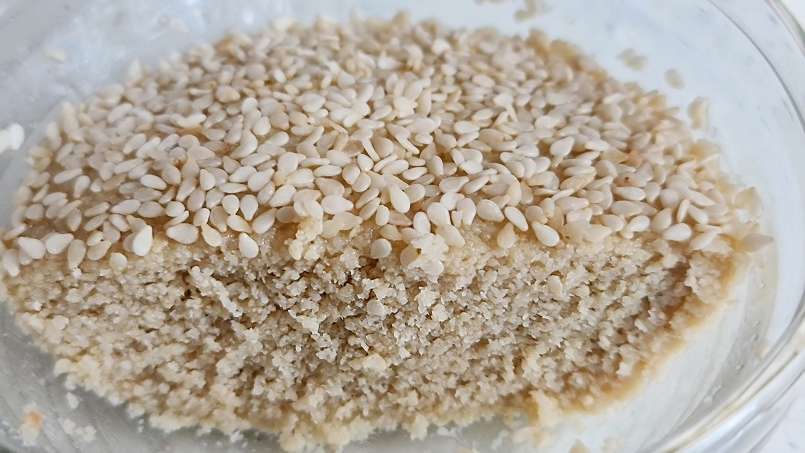
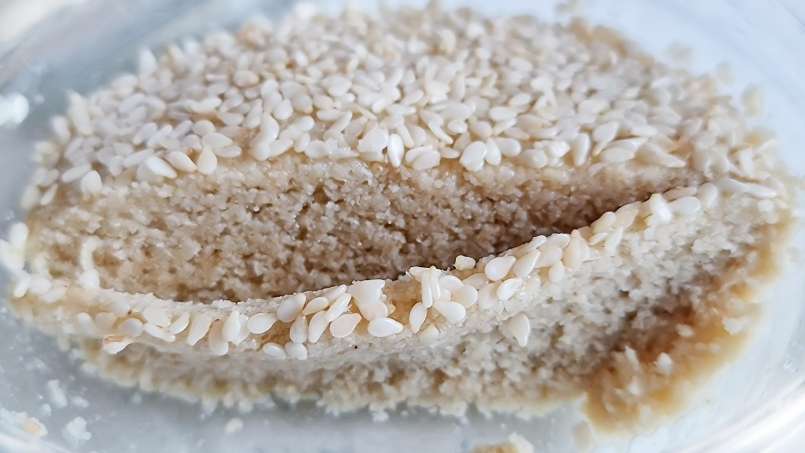
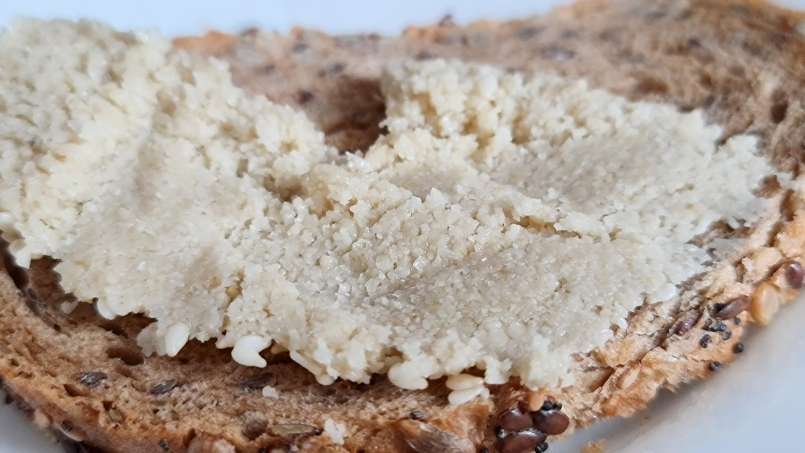
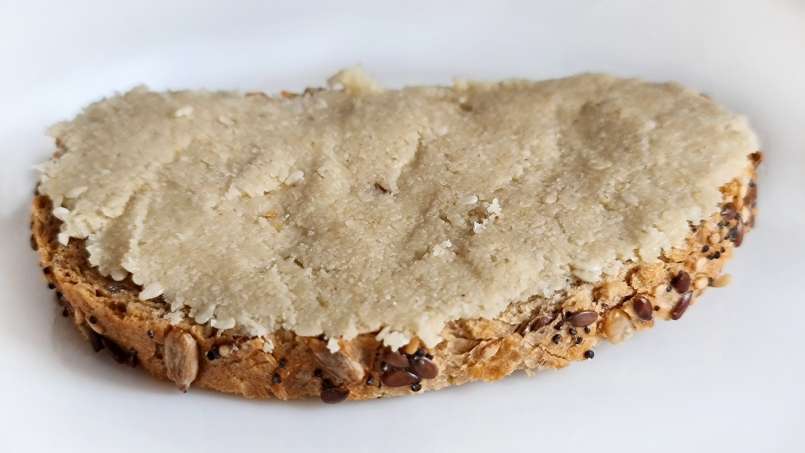
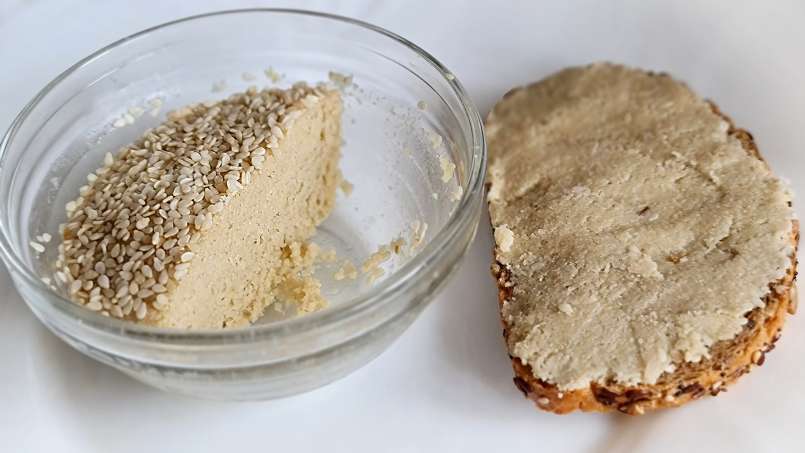
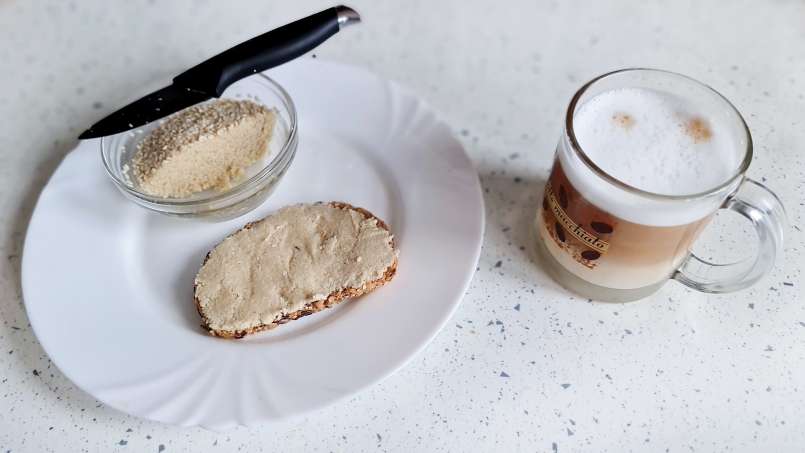
Comments